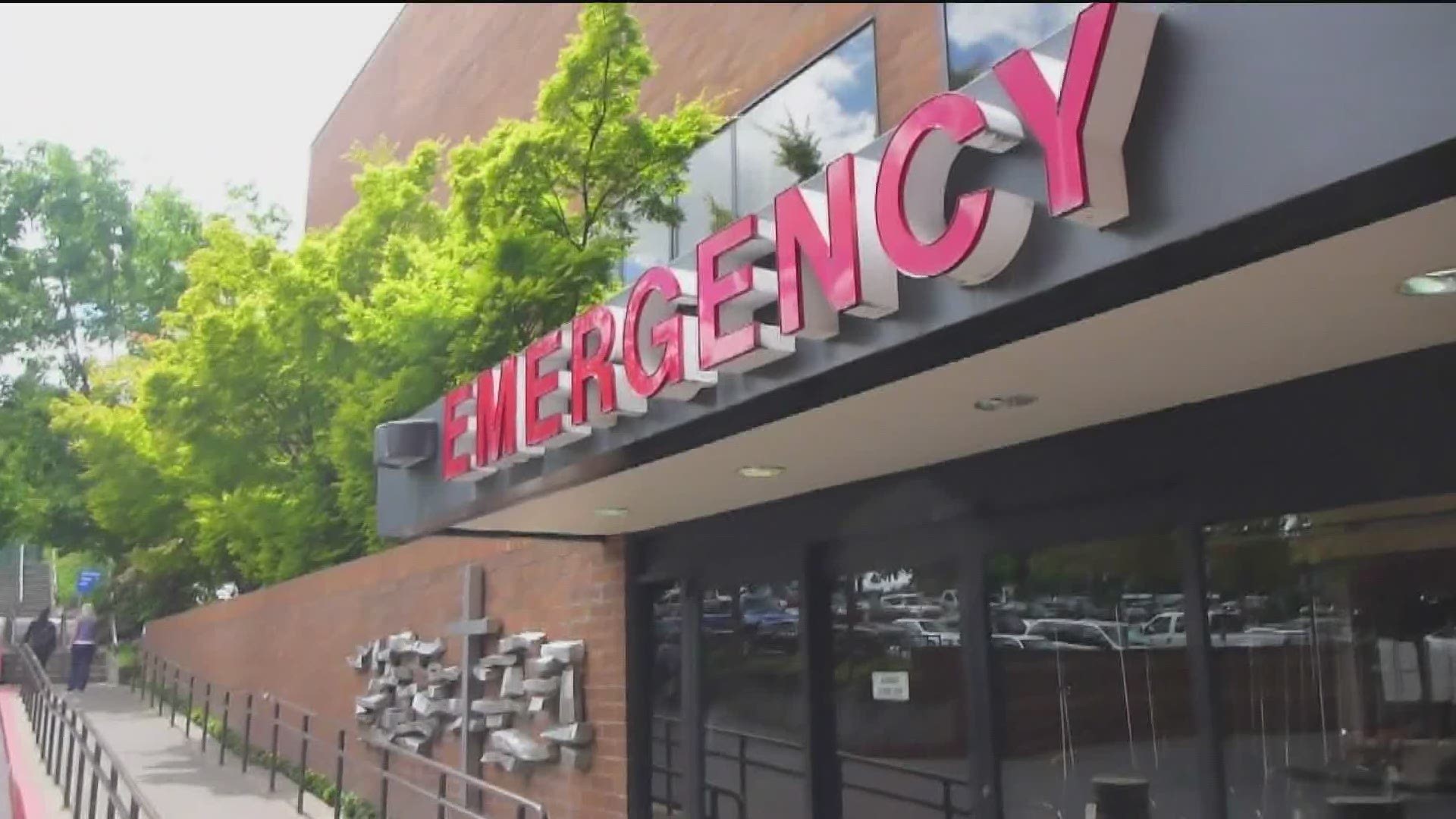SAN DIEGO COUNTY, Calif. — If someone with COVID-19 is hospitalized and, or passes away, does the government reimburse hospitals more for that type of care?
It's a question many News 8 viewers have emailed about, and in one particular one, a viewer said: “My boss heard from a doctor that hospitals are paid $9,000 each listed COVID [sic] death.”
In another email, a News 8 viewer said, regarding a friend's relative's passing from cancer: "When they [the family] received the death certificate, the death was listed from COVID-19. When they questioned the hospital about it, the hospital told them that this is what they were told to do because the hospital gets $37,000 per COVID-19 death. How often is this happening?"
News 8 can verify that hospitals do get paid more for COVID-19 related cases. A provision in the Coronavirus Aid, Relief, and Economic Security or CARES Act pays an additional 20% on top of traditional Medicare rates during the public health emergency.
How much are hospitals getting?
The numbers vary.
During a television interview, a Minnesota state senator said it was $13,000 for someone admitted with COVID-19, and $39,000 if they were placed on a ventilator.
Those estimates, however, have not been verified.
According to a Medicare spokesperson, while hospitals do get reimbursed more for patients on ventilators, "Medicare adjusts hospital payment based on geographic variation in local costs."
So are hospitals inflating the numbers?
While it's possible, there is no proof of it happening.
The Medicare spokesperson said:
"Claims with inaccurate diagnosis or DRG would be subject to recoupment and/or other potential civil or criminal charges for false claims."
To date, News 8 could not find any hospitals cited for making inaccurate claims on discharge papers or death certificates.
If you see a story online or hear a rumor you want verified, let us know. Email us at verify@kfmb.com.
RELATED: $75M in federal COVID-19 funding to aid North County San Diego, South Orange County hospitals
View all News 8 coverage of coronavirus / COVID-19
News 8 has joined forces with The San Diego Foundation to raise immediate, emergency funds for our most vulnerable neighbors in need. Here is how you can help.
We also have a Frequently Asked Questions page we will continue updating with the latest information and reports.
Click here to watch "Facts Not Fear," a News 8 Special on coronavirus from March 26, 2020.
BACKGROUND
According to the CDC, coronavirus (COVID-19) is a family of viruses that is spreadable from person to person. Coronavirus is believed to have been first detected in a seafood market in Wuhan, China in December 2019. If someone is sick with coronavirus, the symptoms they may show include mild to severe respiratory illness, cough, and difficulty breathing.
Currently, there is no vaccine, however, the CDC suggests the following precautions, as with any other respiratory illness:
Know how it spreads
There is no vaccine
The best way to prevent illness is to avoid being exposed to the virus
It is thought to spread mainly from person-person between people in close contact
And believed to be spread by respiratory droplets produced when an infected person coughs or sneezes
Protect yourself
Wash your hands with soap and water for a minimum of 20 seconds
If soap and water aren't available, use hand sanitizer that contains at least 60% alcohol
Avoid touching your eyes, nose, and mouth
Avoid close contact with people who are sick
Put distance between yourselves and others
Protect others
Stay home when you are sick
Wear a facemask if you are sick
Cover your cough or sneeze with a tissue, then throw the tissue in the trash
If you don't have tissue, cough or sneeze into the inside of your elbow
Immediately wash your hands after coughing and sneezing
Clean and disinfect frequently touched objects and surfaces using a regular household cleaning spray or wipe
You can find information on disinfecting and cleaning on the CDC's How to Protect Yourself page.
The California Department of Public Health has issued guidance on the use of cloth face coverings to protect against the spread of the novel coronavirus COVID-19.
The County of San Diego has made face coverings mandatory for those working with the public including grocery stores, pharmacies, gas stations, convenience stores, and similar businesses.
While officials say these face coverings are not a substitute for practices like social distancing and handwashing, there is evidence to suggest that the use of cloth face coverings by the public during a pandemic could help reduce disease transmission. Officials do not recommend the public use N-95 or surgical masks which are needed by health care workers and first responders.

